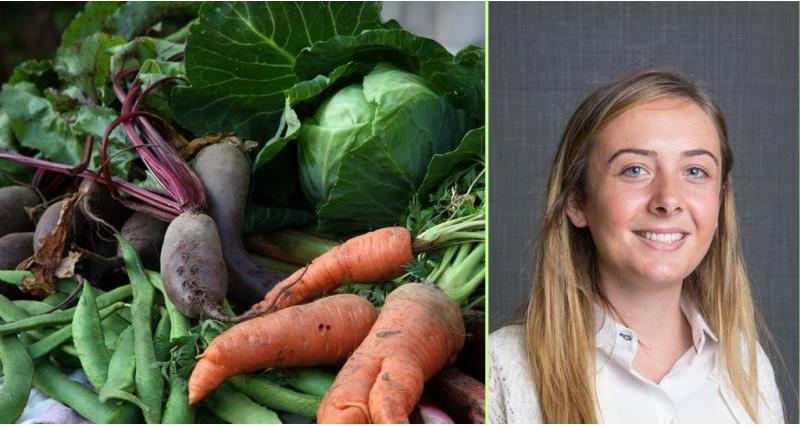In her first blog for NFUonline, Chloe Dunne, who’s just started in a student placement role in the NFU’s food chain team, reports from the Soil Association’s Produce Forum. She writes:
As the centre for Riverfords’ 8,000 deliveries per week servicing customers in the Midlands, Rob Haward, Sacrewell farm manager, said that success here mirrored positive trends for the organic market following five or six years of consecutive and sustained growth.
Finn Cottle, trade development, Soil Association, delved deeper into the current market, environment and consumer habits which are fuelling this growth; identifying retailer mistrust, farmer empathy, health, convenience, awareness of waste and the desire to be informed as major drivers.
While the rise of single and dual occupancy households presented constraints surrounding portion size and packing contributing to waste, all areas presented an exciting opportunity for continued farmer innovation to fulfil consumer demands and preferences.
Fresh produce, canned and packaged foods and beers/wine/spirits were the main contributors to organics’ 7.1% sales growth in 2016. Organic bananas were used as an example of how good availability can increase consumption and elicit growth; achieving 29.7% growth and maintaining their status as the UK’s most consumed organic fruit. Accessibility was a vital component in increasing organic consumption, with demand outstripping supply in many areas.
Currently possessing a 1.5% market share, the organics sector still retains much potential for further growth, with many opportunities stemming from increased retailer focus and a broader market space, and with the proliferation of smaller independents and delivery box schemes. In 2016, home delivery of organics accounted for £260.8m of £2.09bn total organic turnover, exhibiting 10.5% growth.
Re-thinking the in-store positioning of organics also offered food for thought with dual location thought to capture loyal consumers through stand-alone displays, while integrated displays offered effective targeting of new, occasional and opportunist consumers.
The strengths and weaknesses were debated of marketing organics as an additional tier for parent product categories or as a stand-alone section. The discounters’ increasing focus on premium categories also offered mixed feelings regarding organics’ image, consumer perceived value and widening price differentials; with differences already culminating at 199% and 122% for broccoli and carrots, respectively.
Despite the majority of positive messages, challenges to the sector were voiced surrounding land availability, product pricing and quality, in addition to market entry from Amazon Fresh and Amazon’s purchase of Whole Foods.
With regards to Brexit and the EU; Sarah Hathway, Soil Association certification, discussed how the ongoing review of the EU Organics Regulation continues to create uncertainty for growers. The review is now the longest in the history of Europe, however difficulties in finding any compromise on the text is holding up bring this into legislation.
Lee Abbey from the NFU’s horticulture and potatoes team gave an overview of how growers are already encountering problems surrounding labour, with May 2017 seeing only 83% fulfilment of labour requirements, compared to 96% for the same time last year; representing a 1.5K shortage. Declining returnees and high staff turnover occurred amid NFU calls for measures similar to previous seasonal workers schemes to be constructed to prevent a worsening situation.
